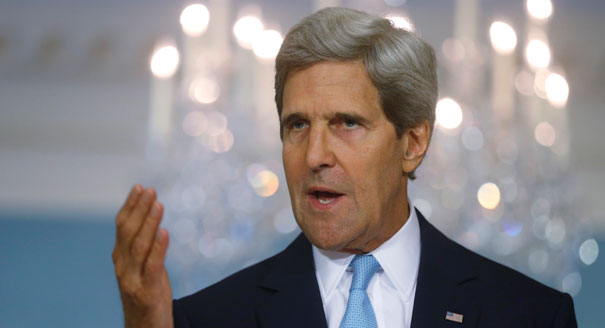
John Kerry’s “Munich Moment”
September 6, 2013
This week Secretary of State John Kerry spoke of the situation in Syria and our national time of decision regarding possible military action as a “Munich moment.” He was referring to the conference that occurred in late September 1938 in Munich in which the leaders of Great Britain, France, and Italy met with Adolf Hitler and agreed to allow Germany to annex the Sudetenland, then part of Czechoslovakia. For myself, I think the analogy is problematical, but it tells us a lot about the abiding influence of that moment in history on people of Kerry’s generation that he chose to describe the current situation in this way.
Since I am teaching a course on “Germany and the Holocaust” this semester, I thought it would be interesting to discuss with my students their thinking and above all to point out the enduring significance of that moment. When I spoke of the Munich conference and a “Munich moment,” most of them had no idea what I was talking about. Some thought I was referring to the terrorist attack on Munich athletes during the 1972 Olympics.
In short, John Kerry’s analogy didn’t work for them because they didn’t know the historical reference. After some discussion, several of them recalled reading about it but for them the term “Munich moment” didn’t resonate the way it clearly did for Kerry.
I have found myself thinking about this a lot and wondering and realizing how much we sometimes assume about our shared historical references. That topic in itself seems to me to be worth much discussion—“Munich moment” or not.